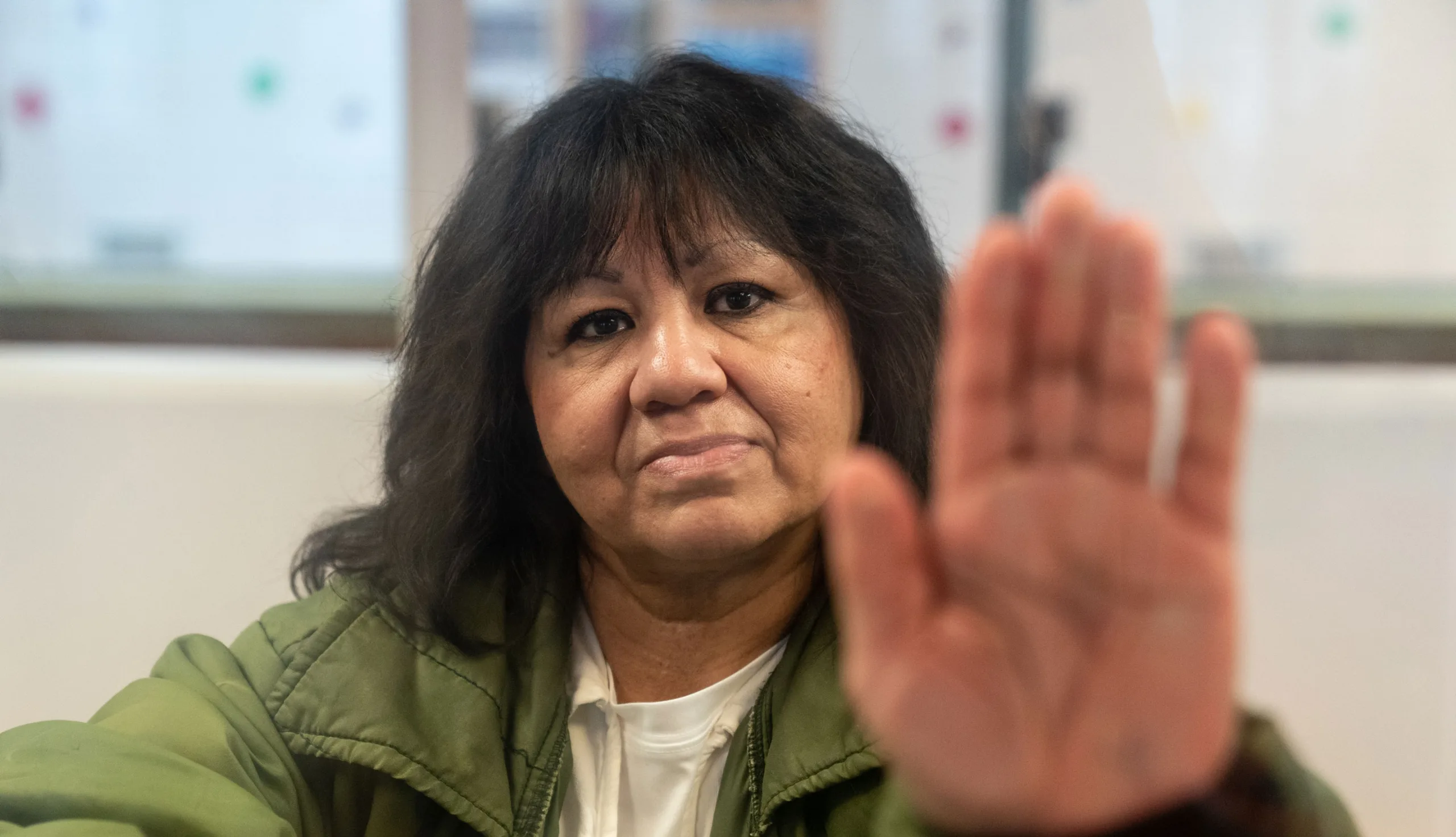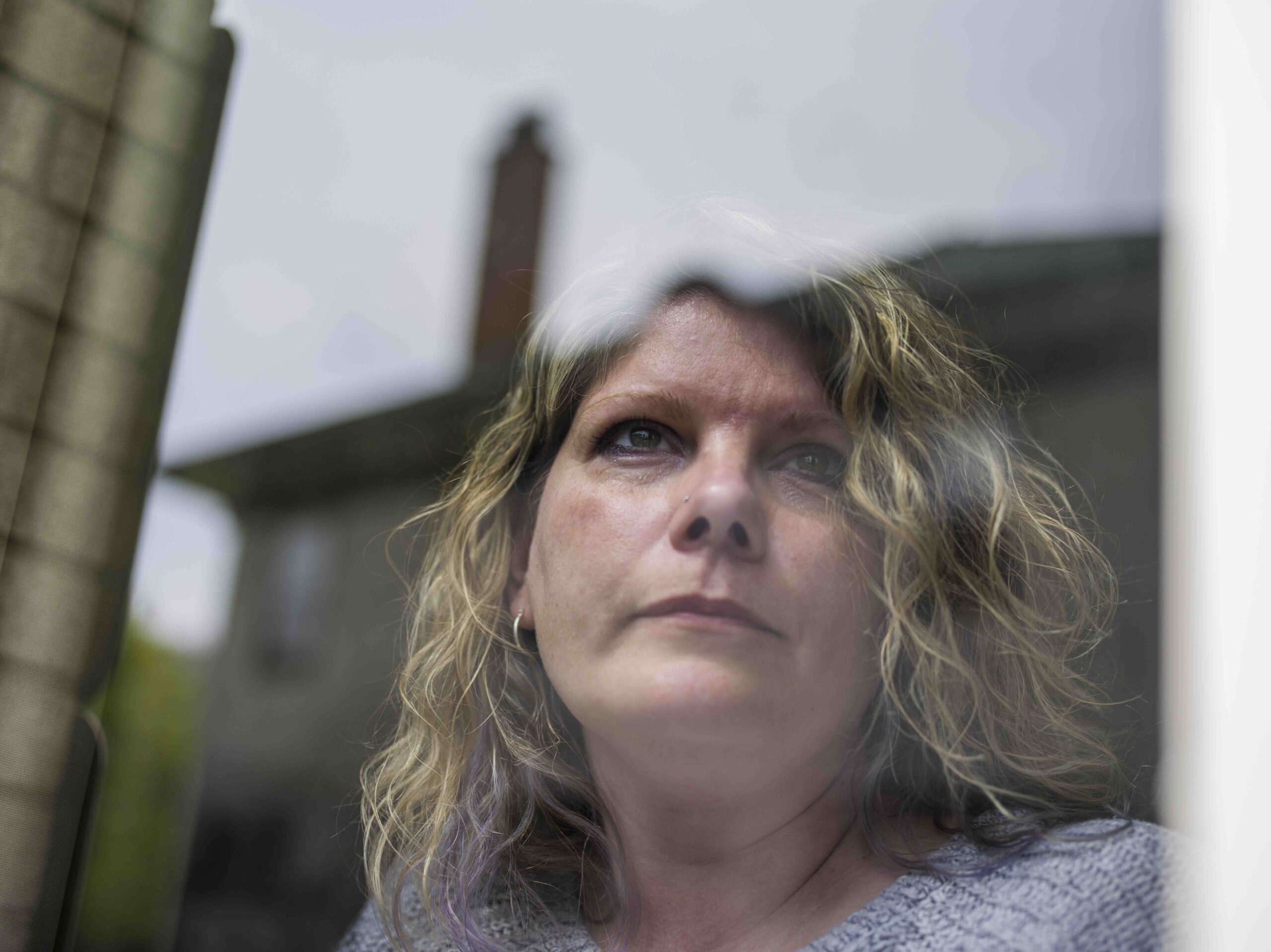Trial Judge Recognizes Melissa Lucio’s Innocence — 8 Facts You Need to Know
After 17 years on death row, new findings affirm Melissa Lucio’s innocence.
04.09.25 By Innocence Staff
Melissa Lucio was wrongly convicted and sentenced to death for the accidental death of her daughter, Mariah, who died two days after a fall down a flight of stairs. Ms. Lucio has spent nearly two decades on Texas’ death row for a crime that never happened.
Just two days before her scheduled execution in April 2022, the Texas Court of Criminal Appeals (CCA) issued a stay and ordered the 138th Judicial District Court of Cameron County to review new evidence pointing to her innocence.
In April 2024, the judge who presided over Ms. Lucio’s original trial — Judge Arturo Nelson — found that the former prosecution team illegally suppressed critical evidence showing that Mariah’s injuries were consistent with an accidental fall, not abuse. Judge Nelson ruled that the suppression of this evidence at Ms. Lucio’s trial violated her constitutional rights under Brady v. Maryland and recommended that her conviction be overturned. Cameron County District Attorney Luis Saenz agreed, affirming that Ms. Lucio’s rights were violated and that her conviction should not stand.
Then, in October 2024, after further review of Ms. Lucio’s remaining claims, Judge Nelson went a step further: he found that Melissa Lucio is actually innocent and that she did not kill her daughter, and recommended that both her conviction and death sentence be vacated. The case is now pending at the Texas Court of Criminal Appeals, which will decide whether to adopt these findings and finally overturn her wrongful conviction.
As Vanessa Potkin, director of special litigation at the Innocence Project and one of Ms. Lucio’s attorneys, said, “Melissa Lucio lived every parent’s nightmare when she lost her daughter after a tragic accident. It became a nightmare from which she couldn’t wake up when she was sent to death row for a crime that never happened. After 17 years on death row, it’s time for the nightmare to end. Melissa should be home right now with her children and grandchildren.”
Read and share these key facts about a woman on death row for a crime that never occurred.
1. The judge who presided over Melissa Lucio’s trial finds she is “actually innocent.”
Ms. Lucio’s conviction was based on testimony from a medical examiner that Mariah’s injuries could only have been caused by intentional abuse shortly before her death. Considering the new medical evidence and witness accounts, Judge Nelson found clear and convincing evidence that Mariah’s fatal head injury was caused by an accidental fall on stairs two days before she died and that her extensive bruising was not caused by abuse but rather a complication of her fall. Judge Nelson found that “no rational juror could have convicted [Ms. Lucio] of killing her daughter after hearing all of the evidence from her original trial alongside all of the new evidence she has presented.”
2. Ms. Lucio’s statements to police have all the hallmarks of a false confession.
Within hours of her daughter’s death, Ms. Lucio was subjected to more than five hours of continuous interrogation. During that time, she asserted her innocence 86 times verbally and 35 times non-verbally by shaking her head. Despite her repeated denials, police refused to accept any answer other than a confession — making it clear the interrogation would not end until she told them what they wanted to hear. While most interrogations last 30 minutes to two hours, false confessions are often extracted during longer, high-pressure sessions, like Ms. Lucio’s. After hours of coercive questioning, Ms. Lucio — exhausted and manipulated — finally relented, saying, “I guess I did it.”
Throughout the interrogation, officers used manipulative, psychological tactics known to cause false confessions. They ignored Ms. Lucio’s extreme vulnerabilities, including shock and grief over her daughter’s death, sleep deprivation, emotional exhaustion, high suggestibility, and a lifetime of trauma from sexual abuse and domestic violence. At one point, a detective even shouted at her, “[i]f I beat you half to death like that little child was beat, I bet you you’d die too.”
Experts on false confessions, including Dr. Gisli Gudjonsson, one of the world’s leading scholars in the field, and David Thompson, an interrogation training expert, reviewed her case and concluded that she “was relentlessly pressured and extensively manipulated.” They further determined that her statements bore “the hallmarks of a coerced-compliant false confession.” Dr. Gudjonsson assessed that her case presents a “very high” risk of false confession, calling the severity and combination of risk factors “exceptional” compared to other cases he has evaluated worldwide. Mr. Thompson added that “repetitive threats combined with promises or suggestions of leniency are known to incentivize innocent subjects to confess” — tactics that were used on her.
These expert findings align with a disturbing national trend: false confessions are a leading cause of wrongful convictions in the U.S. According to the National Registry of Exonerations, among women exonerated after murder convictions, over one-quarter involved false confessions, with nearly one-third involving child victims.
3. Ms. Lucio’s lifetime of sexual abuse and domestic violence made her especially vulnerable to coercive interrogation tactics.
Ms. Lucio’s jury never heard that her long history of childhood sexual abuse and domestic violence made her especially vulnerable to the coercive interrogation techniques law enforcement used against her. Years of trauma had conditioned her to defer to authority, remain passive in high-stress situations, and suppress visible emotion — all behaviors that were later misinterpreted by police and prosecutors as signs of guilt. Dr. Lucy Guarnera, Assistant Professor of Psychiatry and Neurobehavioral Sciences at the University of Virginia School of Medicine, submitted a report explaining that new scientific research — unavailable at the time of Ms. Lucio’s trial — has since established clear links between trauma and heightened vulnerability to coercive interrogation. Dr. Guarnera explains that the tactics used against Ms. Lucio “mirror precisely the dynamics of intimate partner violence,” exploiting the same patterns of control, fear, and compliance that define abusive relationships.
This broader understanding of trauma underscores how Ms. Lucio’s past made her particularly susceptible to pressure from law enforcement — yet the jury was never given the tools to recognize this dynamic. The absence of expert testimony on trauma and its psychological effects allowed harmful assumptions and power imbalances to shape the outcome of Ms. Lucio’s case.
Judge Nelson found that “new scientific evidence regarding [Ms. Lucio’s] heightened vulnerability to interrogative pressure casts doubt upon the reliability of her custodial admissions.” Judge Nelson further found that this new evidence makes it more likely than not that a jury presented with relevant expert testimony would “conclude that [Ms. Lucio’s] vague, cryptic admissions [in the interrogation room] reflect[ed] merely her acquiescence to officers’ demands for a confession,” and not a true confession.
4. The jury was presented with unscientific testimony asserting Ms. Lucio’s guilt.
Judge Nelson also found that Ms. Lucio’s conviction was based on false evidence — most notably, the testimony of a Texas Ranger who falsely assured the jury he could tell Ms. Lucio was guilty based on her demeanor and body language during interrogation. The judge determined that this claim was “misleading and scientifically wrong,” aligning with current scientific consensus.
Neuroscientist Lisa Feldman Barrett, a distinguished professor of psychology at Northeastern University, explained that there is no scientific basis for determining a person’s internal thoughts and emotions — such as guilt or innocence — from their facial movements, posture, body movements, or diction. She noted that contrary to the Texas Ranger’s claim of a “black and white” difference between guilty and innocent suspects, science has established that “there is no single template, fingerprint, or signature of physical signals that express guilt or innocence across all individuals in all situations.”
Judge Nelson, in his Findings of Fact and Conclusions of Law, credited the evidence presented through Dr. Barrett. The court found that the Texas Ranger’s asserted ability to determine guilt based on demeanor was “disconfirmed” by a broad range of scientific techniques, including brain imaging studies, cross-cultural studies, physiology studies, and experiments using artificial intelligence algorithms. Therefore, the court concluded that the Texas Ranger’s testimony was false.
Further compounding the injustice, the jury never heard critical evidence about Ms. Lucio’s long history of child sexual abuse and domestic violence — trauma that profoundly shaped her behavior in the wake of her daughter’s death. The trial court barred expert testimony that would have helped jurors understand how survivors of severe trauma may respond to stress, fear, and grief.
In her evaluation, Dr. Bethany Brand, a renowned trauma expert, concluded that Ms. Lucio “endured a truly horrendous level of extreme and frequent childhood sexual abuse.” She explained that “the paramedics and detectives who opined that Melissa did not show as much emotion as they thought a mother should show had no awareness of her complex history of trauma” nor “that Melissa had survived daily abuse and degradation by dissociating and suppressing strong emotion.”
Without the crucial context of Ms. Lucio’s trauma, jurors were left to interpret her demeanor through the Ranger’s distorted and unscientific lens — that her slumped posture, passivity and lack of eye contact during the investigation indicated guilt. Her own words, spoken under pressure during a coercive interrogation, and the Ranger’s flawed impressions became the backbone of a wrongful conviction.
The omission of this critical evidence was especially damaging because the prosecution’s case for capital murder was weak — and its case for a death sentence even weaker. Ms. Lucio had no prior record of violence, and there was no reliable evidence of intentional harm. Yet she was sentenced to death, not based on facts, but on misinterpretation and suppressed truth.


Ms Lucio we felt so bad for you the only way we could help you was with prayers and lighting candles so you wouldn’t lose hope.
MELISSA
LORETTA